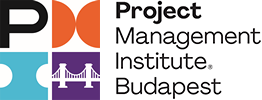August 08 2020 at 12:55AM
Challenging times calls for businesses to embrace this one multi-faceted skill
Among the many lessons from the coronavirus pandemic, this period has taught us the importance of one skill: Improvisation.
While improvisation isn’t a comprehensive strategy, at its core, it boils to flexibility, which is increasingly important during a pandemic. Organizations have been, and will continue to be, confronted with an even greater need for rapid and efficient transformation. They will have to be proactive, innovative, and “gymnastic” in their responses.
For a certain stretch of time, the need to improvise tests your organization’s mettle. The process makes you see the world differently and consider unconventional options. But improvisation doesn’t come in just one flavor. Organizations improvise for a variety of reasons, and their improvisation often comes in stages.
Here are some of possible approaches to incorporating improvisation during the coronavirus crisis.
INVENTION FROM NECESSITY
At the most basic level, most organizations improvise out of necessity. As a result of the crisis, organizations are facing unavoidable change at the strategic and tactical levels. In some instances, this means overhauling entire business processes or customer engagement models.
That’s because one salutary effect of a crisis is that it shakes our faith in “sacred cows,” or long-standing practices and procedures. Pharma companies are radically re-timing the development period of bringing their vaccines to the market. Companies across industries are shifting their entire user experiences online.
At my company, PMI, we’ve moved to proctor our certification exams online. Why? People are, understandably, unwilling to gather at a central facility to sit for an exam during a pandemic. For us, online proctoring was long in the making in order to become a fully digital organization. The COVID-19 crisis accelerated this transformation. And we now anticipate the online and computer-based tests to become the most popular among our candidates.
EXPERIMENTATION
Other organizations improvise as a way of experimenting or trying new approaches. This is planned improvisation. It’s generally less existential than improvising out of necessity. It’s more akin to what a jazz musician does to stretch his or her talent and abilities.
We see this style of improvisation most clearly in how organizations are adapting to remote work; for example, by testing new virtual teamwork tools in order to create shared work environments. They’re also learning how to exert leadership and management oversight in a virtual world—to strike the right balance between micromanagement and ensuring productivity. And they’re refining how they approach communications to improve efficiency and productivity during interactions.
For our company, we’ve improvised a new way to foster water-cooler chats. We started a daily meeting where the whole organization connects to discuss topics unrelated to ongoing workstreams and projects. Instead, we spend the time sharing virtual work best practices, showing off our new colleagues (so, our kids, pets, and plants) or discussing any other topics that are top of mind as a community.
It’s been a great way to foster connection, even while socially distant. It helps us spark collisions that mimic those that occur in-person.
EYE ON THE FUTURE
The last stage of improvisation meditates on what the future looks like. The most advanced organizations are already reimagining the world of work, post-pandemic. And they’re assessing the value of all the actions they improvised during the pandemic to determine which ones they’ll bring forward into a future that they know will be less predictable than the past.
Most of these actions will be operational in nature. Now that many companies have gotten a handle of the dynamics of working from home, how do we want to deploy the workforce to meet our goals, in terms of productivity, profit, and personal work-life balance? The decisions we make will have significant implications for everything from technology to human resources to real estate.
Many of these steps will focus on how we work. This crisis has underscored the importance of certain skills when working in a virtual environment, like collaborative leadership, communications, and emotional intelligence. Some have termed these “soft skills”—I prefer to call them “power skills.”
In fact, “collaborative leadership” and “empathy for the customer” are the teamwork skills rated most highly by project managers in our company’s annual survey. It took the global pandemic and the wholesale move to a virtual work setting to more broadly underscore their importance as a way of humanizing work. Most likely, many leaders will capitalize on these skills as the traditional office takes on a more hybrid form, mixing virtual and physical workspaces, as a result of the pandemic.
Improvisation, as noted, is not a strategy, and it certainly can’t serve as a roadmap for organizations over the long-term. But this crisis has laid bare the underlying fragility of our economies and business models. And it has accentuated the importance of adopting a more agile and improvisational style in how we approach the months and years ahead.
Sunil Prashara is the president and CEO of the Project Management Institute (PMI). He is the lead advocate for PMI’s global organization, serving more than three million professionals working in nearly every country of the world. His primary responsibility is to implement PMI’s global strategic plan with a priority on strategic focus, customer centricity, and organizational agility. Source: https://www.fastcompany.com/90529468/challenging-times-calls-for-businesses-to-embrace-this-one-multi-faceted-skill



